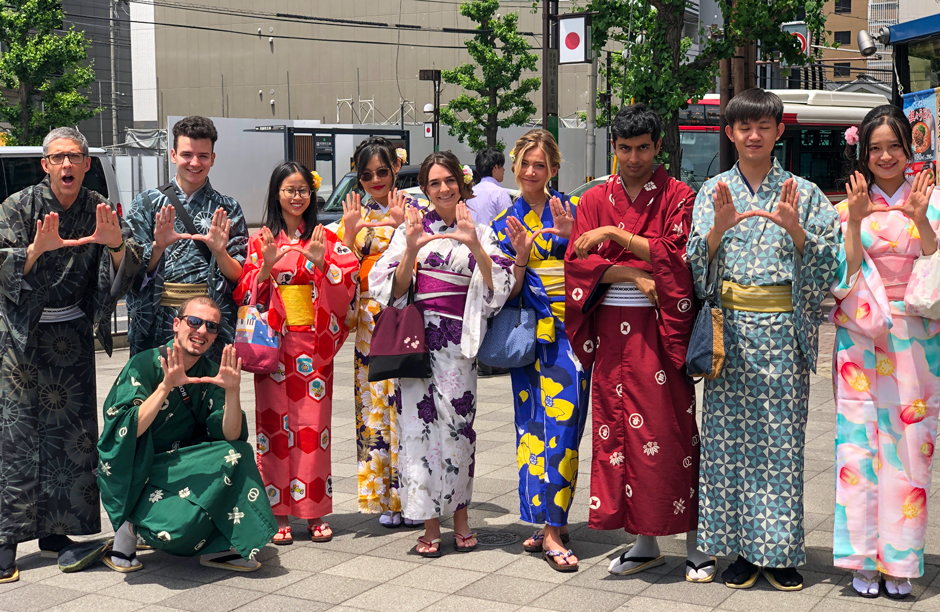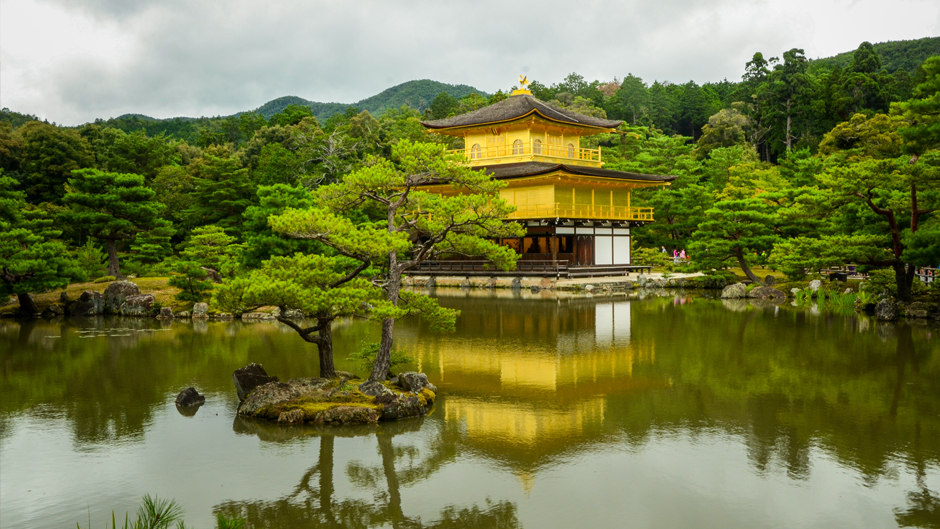This summer, University of Miami students will have the chance to tour Kyoto’s Mitsubishi Motors plant and visit with a survivor of the Hiroshima atomic bombing in Japan. They can visit seven cities in Spain to learn about the nation’s Jewish heritage, or volunteer at a school in South Africa, while others can attend France’s 12-day Cannes Lions creative advertising festival.
These are just a few of the 15 different programs offered to students through the University’s Office of Study Abroad. All summer programs, which range from two weeks to a month, are faculty-led, which means students take a course with a member of the University faculty who has designed and curated the class to suit the location.
But those interested have just a few more weeks to apply. The deadline for all summer study abroad programs is Feb. 1, said Devika Milner, executive director of Study Abroad.
“Our faculty take great pains to bring their own expertise and scholarship into the experience abroad, and many often take a course they teach in Coral Gables and enhance it to be more relevant through a different cultural lens,” Milner added. “That, in effect, is a transformative experience for the student who not only gets to learn the content, but also gets to have the cross-cultural experience abroad.”
New programs this summer include an Olympics marketing course in Paris, taught by Trinidad Callava, a marketing lecturer in the Miami Herbert Business School, as well as one focused on consumer behavior in Argentina and Chile, taught by Sarai Nuñez, assistant professor of strategic communication in the School of Communication. Another new opportunity is The Jewish Experience in Spain, which will allow students to explore unique Jewish sites and history in the cities of Barcelona, Gerona, Madrid, Toledo, Seville, Cordoba, Lucena, and Granada.
“We are enthusiastic about providing students with this enriching educational experience, and we hope it will offer deep insights into a significant aspect of global heritage,” said Shai Cohen, a lecturer of Spanish, Hebrew, and Sephardic Studies in the College of Arts and Sciences, who will teach the course.
Meanwhile, Francesco Travascio, a professor of mechanical and aerospace engineering, is joining Gianluca D’Ippolito, a lecturer in biomedical engineering, to lead an immersive experience for engineering majors in Kyoto, Japan. After D’Ippolito started the College of Engineering’s first course abroad in Italy last summer, this is the second study abroad program designed for engineering undergraduate students. Yet, both programs are open this summer to all interested students, the instructors said. In Japan, D’Ippolito will teach cellular engineering and will take the entire group of students to the Center for iPS Cell Research and Application at Kyoto University, known for creating a more ethical way to harvest biological stem cells for research. Travascio will teach a course called systems dynamics and added that there are three weekend trips planned to help students fully experience Japanese culture, including commuting on a bullet train. Travascio said that the experience for engineers, or anyone interested in the biotech industry, will be unparalleled.
“The opportunity to see something like the Mitsubishi plant is unique because you see a plant that produces cars in Japan, which is likely very different than what is done in other parts of the world,” Travascio said. “The Japanese auto industry invented a method for optimizing the production of goods that is now used across the world.”
In addition, Amy Zanne, professor of biology and Aresty Chair in Tropical Ecology, will lead an ecology field work experience where students will be immersed in the savanna of Brazil, and explore the rich regional biodiversity on weekly field trips.

Popular summer programs offered again this year include a tour of the architecture in Greece and Italy with Frank Martinez, associate professor of architecture; a class on British politics and policy in the United Kingdom with political science faculty members Joseph Uscinski and Michael Touchton; as well as a film course taught by Ed Talavera, professor of cinematic arts, in Japan, and one taught in Europe by Ali Habashi and John Soliday, associate professors of cinematic arts. There is also a South Africa experience led by Richard Grant, professor of geography and sustainable development, where students learn about the history of the nation and volunteer at a school within its largest wildlife preserve, Kruger National Park.
Learn more about one of the summer Study Abroad programs, or visit the website for advising hours.

